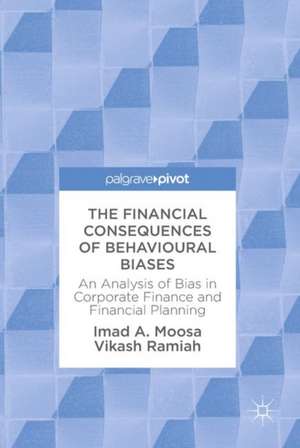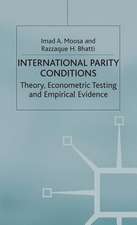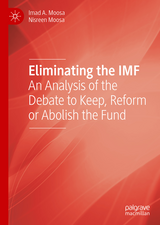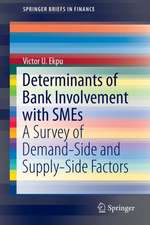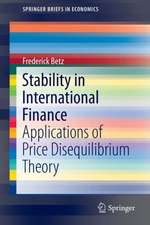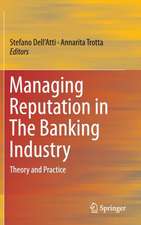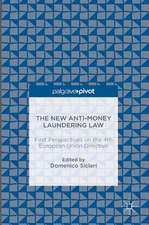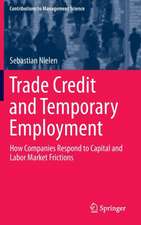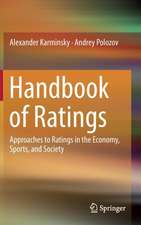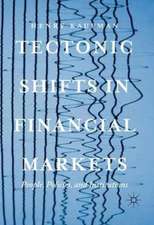The Financial Consequences of Behavioural Biases: An Analysis of Bias in Corporate Finance and Financial Planning
Autor Imad A. Moosa, Vikash Ramiahen Limba Engleză Hardback – 10 noi 2017
This book provides a concise analysis of behavioural biases and their implications for financial decision making. The book is written in the normative tradition, arguing strongly for the superiority of behavioural finance with respect to explaining observed phenomena in financial markets. It offers some unique features, including a discussion of the issue of conspiracy theory and how behavioural biases lead to belief in conspiracy theories. Lingering belief in the principles of neoclassical finance is attributed in part to the doctrine of publish or perish, which dominates contemporary academia. The offshoots of behavioural finance are discussed in detail, including ecological finance, environmental finance, social finance, experimental finance, neurofinance, and emotional finance. A comprehensive discussion of narcissism is presented where it is demonstrated that narcissistic behaviour is prevalent in the finance industry and that it led to the eruption of the global financial crisis.
Preț: 419.81 lei
Nou
Puncte Express: 630
Preț estimativ în valută:
80.33€ • 83.87$ • 66.48£
80.33€ • 83.87$ • 66.48£
Carte tipărită la comandă
Livrare economică 05-19 aprilie
Preluare comenzi: 021 569.72.76
Specificații
ISBN-13: 9783319693880
ISBN-10: 3319693883
Pagini: 174
Ilustrații: XV, 174 p. 12 illus.
Dimensiuni: 148 x 210 x 19 mm
Greutate: 0.38 kg
Ediția:1st ed. 2017
Editura: Springer International Publishing
Colecția Palgrave Macmillan
Locul publicării:Cham, Switzerland
ISBN-10: 3319693883
Pagini: 174
Ilustrații: XV, 174 p. 12 illus.
Dimensiuni: 148 x 210 x 19 mm
Greutate: 0.38 kg
Ediția:1st ed. 2017
Editura: Springer International Publishing
Colecția Palgrave Macmillan
Locul publicării:Cham, Switzerland
Cuprins
1. The Rise and Fall of Neoclassical Finance.- 2. The Rise and Rise of Behavioural Finance.- 3. Overconfidence and Self-Serving Bias.- 4. Loss Aversion Bias, the Disposition Effect and Representativeness Bias.- 5. Other Biases in the Behavioural Finance Literature.- 6. Recent Developments.- 7. Epilogue.
Notă biografică
Imad A. Moosa is Professor of Finance at RMIT University, Australia. Before coming to academia, he worked in investment banking for a period of ten years. He has published extensively in both economics and finance.
Vikash Ramiah is Associate Professor of Finance at the University of South Australia. He has published extensively in behavioural and environmental finance, and he is a research fellow for the Institute of Global Business and Society, TH Köln, and Tianjin Academy of Environmental Sciences.
Textul de pe ultima copertă
This book provides a concise analysis of behavioural biases and their implications for financial decision making. The book is written in the normative tradition, arguing strongly for the superiority of behavioural finance with respect to explaining observed phenomena in financial markets. It offers some unique features, including a discussion of the issue of conspiracy theory and how behavioural biases lead to belief in conspiracy theories. Lingering belief in the principles of neoclassical finance is attributed in part to the doctrine of publish or perish, which dominates contemporary academia. The offshoots of behavioural finance are discussed in detail, including ecological finance, environmental finance, social finance, experimental finance, neurofinance, and emotional finance. A comprehensive discussion of narcissism is presented where it is demonstrated that narcissistic behaviour is prevalent in the finance industry and that it led to the eruption of the global financial crisis.
Caracteristici
Features comprehensive treatment of behavioural biases Provides an outlook for behavioural finance Includes guidelines for profiling financial planners and corporate treasurers Includes supplementary material: sn.pub/extras
